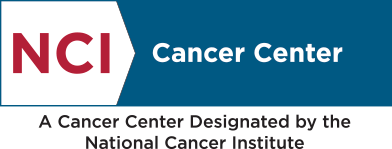Sylvester’s genitourinary oncology high risk clinic provides screening and care planning for people who are at high risk for genitourinary cancers, such as prostate cancer.
High-risk individuals, including those with a family history of prostate cancer or certain genetic mutations, may benefit from earlier and more frequent prostate cancer screening, including prostate-specific antigen (PSA) testing and digital rectal examination (DRE).
If you are identified as high risk, our multi-disciplinary care team will work with you to create a plan with preventative and therapeutic interventions. Our goal is to decrease your risk of future cancers or to detect cancers early (when they are more likely to be cured).
Personalized care for people at high-risk for genitourinary (GU) cancer
Based on your needs, your care team may include:
- Genitourinary surgical oncologists
- Radiation oncologists
- Medical Oncologists
- Radiologists
- Pathologists
- Genetic counselors
- A health coach who will create a personalized assessment of lifestyle modifications for you
Your GU care team will offer you expert guidance and services to protect against GU cancers. Together, we will develop a personalized plan for additional testing, screening, or lifestyle modifications to reduce your risk. We will coordinate genetic testing and high-risk cancer surveillance for you and identify at-risk family members. You will also have access to clinical trials designed to create new methods of preventing GU cancer.
An experienced, dedicated nurse navigator will make sure all of your outside records and test results are received, coordinate appointments, and answer your questions. We make the process friendlier and less daunting.
We do all of this to help you make informed choices about your health.
Who is considered at high risk for GU cancer?
You’re considered to be at high risk if you have:
- Genetic Mutations: Inherited mutations in certain genes, such as BRCA1 and BRCA2, are associated with an increased risk of prostate cancer. Lynch syndrome, an inherited condition linked to colorectal and other cancers, may also increase the risk of GU cancers.
- A Family History: Individuals with a family history of prostate cancer, especially if it involves a first-degree relative, are at increased risk. The risk is higher if multiple relatives are affected or if the cancer occurred at a younger age.
- Elevated PSA by Age: The risk of prostate cancer increases with age. Patients over the age of 40 with a prostate-specific antigen (PSA) level greater than 2.5 should contact a specialist for prostate cancer screening.
If you meet these criteria, your doctor may recommend cancer screenings at a younger age or more frequently (or both).
Let's reduce the risk of GU cancer together.
There's no sure way to prevent cancer, but adopting healthy lifestyle behaviors can help reduce cancer risk. In the U.S., 40% of all cancers and 45% of cancer deaths are related to modifiable risk factors like smoking, excess body weight, and alcohol consumption, physical inactivity and/or poor nutrition.
Eating healthy is an important part of improving your health and reducing your cancer risk. Focus on a plant- based diet, highlighting vegetables, fruits, whole grains and avoiding red and processed meats, added sugars and alcohol.
For more information on healthy weight, nutrition, exercise and tobacco cessation, visit Lifestyle Interventions and Cancer Prevention.
Our comprehensive GU cancer prevention services ensure people at high risk of developing GU cancer receive screening and support to manage their risks.
The experts at Sylvester specialize in:
Genetic testing and counseling
Genetic testing can tell you whether you've inherited a genetic mutation, which significantly increases your risk of developing GU cancer. Our counselors can help you decide whether testing is right for you. They will also talk to you about your results and your options.
Exercise physiology
According to the American Cancer Society, exercise can help lower your risk of up to 13 different types of cancer, including breast, colon, and endometrial cancer, among others. Regular exercise helps you maintain a healthy weight, regulate hormone levels, boost your immune system, reduce swelling, and more. Our exercise experts can design a program to get you moving.
Acupuncture
If you feel anxious or worried about your elevated cancer risk, acupuncture may let you feel more at ease. Acupuncture is a traditional Chinese medicine approach that applies extremely thin needles to various points (acupoints) in the body. It's been shown to enhance mental and physical well-being, including improving sleep and relieving stress and anxiety.
Nutrition counseling
A nutritious diet can help you reduce your cancer risk. Some foods, such as processed foods and red meats, can raise your cancer risk, while other foods, like whole grains, vegetables, and high-fiber foods, can enhance your health. Our registered dietitians offer personalized guidance to eat better, control your weight, and lower your cancer risk.
Risk-reduction surgery referrals
Surgery is a difficult decision; we're here to help you understand all the risks and benefits. We help you understand genetic testing results and offer emotional support every step of the way. We make sure you know all your preventive options so that you can make an informed choice.
To schedule an appointment with a health coach specialized in cancer prevention, please call 305-689-RISK (7475).
